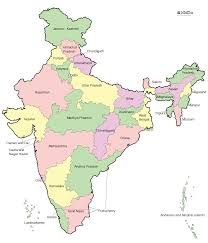Misuse of Article 282 of the Constitution by the Centre to marginalise the political space of States- Fiscal injustice in its larger perspective
Given below is a letter by EAS Sarma to all the Chief Ministers of Indian states on Misuse of Article 282 of the Constitution by the Centre
E A S Sarma
Former Secretary to the Government of India
To
Respected State Chief Ministers
Sir,
The Karnataka Chief Minister, accompanied by the State’s legislators, has registered a loud protest in Delhi against the Centre’s “fiscal injustice”. Kerala has lost no time in extending its support to Karnataka. They contend that the devolution of central taxes to their two respective States has declined over the years. The devolution of the Central taxes in the case of the five southern States, namely, Andhra Pradesh, Telangana, Tamil Nadu, Karnataka, and Kerala, came down from 18.62% in 2014-2015 to 15.8% in 2021-2022 (https://www.deccanherald.com/opinion/tax-southern-states-protests-karnataka-tamil-nadu-kerala-fiscal-injustice-2887606).
While the present political establishment at the Centre may frown upon this saying that it is misleading, it is the present Prime Minister, Shri Narendra Modi, who as the then Chief Minister of Gujarat first talked of “fiscal injustice” saying that the Centre ought to provide 50% of the total tax revenues to the States to enable the latter to invest adequately on their development activities. This is perhaps a valid argument considering that the States, who directly face the people and are accountable to them, have responsibilities covering a wide range of activities, both regulatory and developmental.
Fiscal injustice in its larger perspective- Misuse of Article 282:
While the income-expenditure mismatch in the case of the States no doubt calls for the Finance Commission (FC) to allocate a higher share of devolution to the States (than the present 41%) from the divisible pool of revenues, the States should realise that there is a much larger threat looming on the horizon, far more serious in magnitude, as a result of the Centre’s deliberate attempt to shrink the size of the divisible pool and appropriate an increasing share of it, to project its own political identity across the States.
Article 282 empowers the Union by way of an exception to set apart a limited portion of the tax revenues to take up special schemes in fields in which the States may not have the wherewithal to do so. It is the residual portion of the tax revenues that is at the disposal of the FC to allocate vertically between the Union and the States and horizontally among the States, based on certain well-reasoned criteria, arrived at through a process of wide consultation with the States. The successive governments resorted to the misuse of Article 282 to release funds under the so-called Central and Centrally Sponsored Schemes (CSSs) to the States, often imposing the Centre’s idea of development on the States, ignoring the fact that the States in India represent a wide diversity in terms of culture, language, socioeconomic characteristics etc. that call for local policies that match their needs rather than a “one-nation one-policy” approach that amounts to overriding their priorities.
It is during the last ten years that the present NDA government stepped up on imposing policies on the States through a proliferation of CSSs that carry the brand image of the Central leadership to gain undue mileage at the cost of the political leadership in the States. In most of these schemes, a portion of the funds come from the States but, since the funds are directly transferred from the Centre to beneficiaries through their bank accounts, the States are precluded from taking credit due to them, even though the activities for which funds are released by the Centre are those that fall within the legitimate domain of the States. Simultaneously, this has also had the effect of shrinking the size of the divisible pool from which the Finance Commission (FC) can make allocations, which implies a diminishing role for the FC itself. In short, this has diminished the role of the Finance Commission as a Constitutional umpire in the matter of allocation of resources between the Centre and the States.
This becomes evident when one considers the relative proportions of the funds available to the FC vis-a-vis those outside the FC’s purview. In 2014-15, the FC: Non-FC ratio was 59.9:40.1. The latest Budget estimates show that it will decline to 20.8:79.1. If this trend were to continue, the role of the FC may further shrink, allowing the Central political leadership to gain control over the bulk of the tax revenues and giving it arbitrary authority to use those funds to impose its ideas and its development ideology on the States, closing the door permanently to treating the States as co-partners. This in effect will imply a vastly diminished space for political leadership in each State and a dilution of the idea of federalism, which is an essential characteristic of our Constitution.
In this connection, my earlier letter (https://countercurrents.org/2022/09/increasing-threat-to-federalism-from-centrally-sponsored-schemes-need-to-form-a-federal-front/) refers.
Centre’s unilateral decisions without consulting the States has posed an affront to federalism:
During the last few years, we have seen how the Centre, without consulting the States, has taken far-reaching decisions.
In the specific case of the Finance Commission itself, while notifying the Terms of Reference (TOR), the Centre unilaterally shifted the population reference year from 1971 to 2011 as the basis for the apportionment of funds among the States, which in effect placed all those States that adoptyed prudent policies resulting in moderate population growth rates at a disadvantage. As a result, states such as AP, Telangana, T.Nadu, Karnataka, Kerala, Odisha and W.Bengal received comparatively lower shares in the allocation of funds for no fault of theirs.
Similarly, the Centre has unilaterally proposed shifting the population reference year from 1971 to 2021 (Census for 2021 delayed) as the basis for delimitation of Parliamentary constituencies, which will result in several States such as AP, Telangana, T.Nadu, Karnataka, Kerala, Odisha and W. Bengal losing out in terms of their representation in the Parliament On the other hand, States such as UP, Bihar, MP, Haryana, Gujarat and Rajasthan will have significantly higher proportion of representation in the Parliament. This amounts to a serious democratic injustice.
The Centre’s attempt to enact laws without much discussion in the Parliament and without consulting the States:
In recent times, the nation witnessed a brazen attempt on the part of the political leadership at the Centre to pass laws without any discussion in the Parliament and without any consultation with the States. The way legislative changes have been brought about in the case of the Forest (Conservation) Act, the Mines & Minerals (Development & Regulation) Act, the legislation on the appointment of the election commissioners, amendments to the Right To Information Act, the executive orders isssued under the Electricity Act violate the spirit of federalism.
Such attempts on the part of the Central leadership do not augur well for the future of federalism in the country and the future of democracy. The States should come together, discuss the implications of this and collectively pressurise the Central leadership to respect federalism as a part of the basic structure of the Constitution and treat the States as, in Dr Ambedkar’s words, “co-equal”. The nation’s strength will critically depend on the collective strength of the States and any attempt to weaken them politically will correspondingly erode the strength of the nation.
Against this background, I appeal to you to come together as a part of a “federal front” to protect the turf of federalism.
Regards,
Yours sincerely,
E A S Sarma
Visakhapatnam
11-2-2024










































COMMENTS